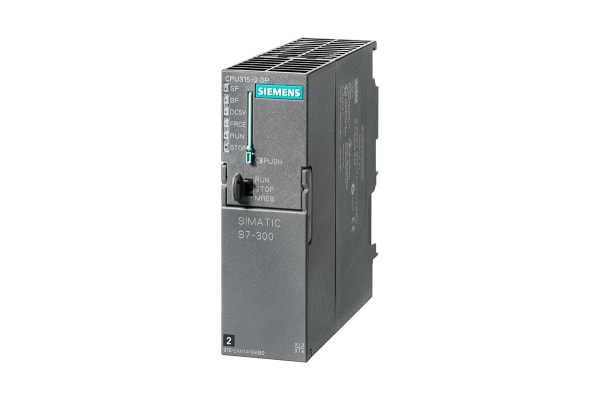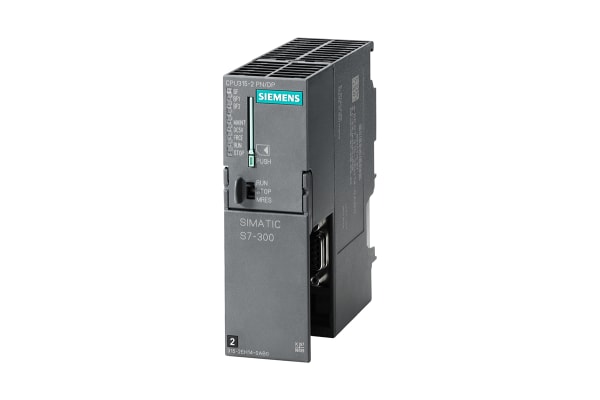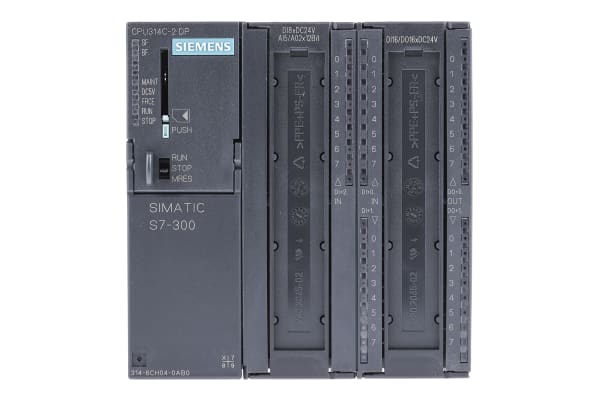PLCs, HMI & Data Acquisition
A PLC (programmable logic controller) is an industrial digital computer designed for the control and automation of manufacturing processes or robotic devices. Programmable Logic Controllers are used where reliability control, simple programming and fault diagnosis is necessary. They were originally built to replace electromechanical relay systems in industrial automation.A CPU (central processing unit) forms part of the PLC system. PLC CPUs are a microprocessor-based control system and act as the electronic circuitry within an industrial computer. They are usually built-in carry out instructions from the computer program via programming languages, performing basic mathematical, logical, control, input and output operations.PLC ApplicationsPLC controllers are incredibly useful and have many applications across several industries such as manufacturing, food & beverage, and building control. PLC’s control the automation process in the machinery used for:Production plantsTraffic light controlsPackaging machinesLifts and escalatorsMedical applicationsAutomatic gate systemsHeating control systemsHow do PLC’s work?PLC Controller’s respond to inputs from programming software and give a desired output. Programmable Logic Controllers can also include human-machine interfaces.Different models use varying PLC Programs based on the programming languages used in the software. Programming languages that are used in PLC programming include:ST: Structured Text (text-based)FBD: Function Block Diagram (graphic-based)LAD: Ladder logic (graphic-based)STL: Statement List (text-based)SCL: Structured Control Language (graphic-based)PLC programming can be quite complex but there are simpler, image-based options available such as Ladder Logic that has user-friendly Ladder diagrams to understand and improve processes. Laptop and software are usually used for Ladder Logic and Ladder Diagrams, however, some older models use handheld controllers.Types of PLC’sProgrammable Logic Controllers can be categorised in multiple ways, each with different functions, features and capabilities. For example, Soft PLC’s are software based and use their own operating system but do not have their own CPU. Whereas, Hard PLC’s are hardware based and typically only include the essential control functions. The full range of programmable controllers include:Hard PLC’sSoft PLC’sCompact PLC’sSlot PLC’sUnitary PLC’sModular PLC’sProgrammable Controllers can also be made more efficient by using equipment such as, HMI displays, DIN Rails, and Communication modules (such as MODBUS) which can be enhanced into a highly functional automated control system with PLC accessories. More information can be found our complete PLCs guide
-
Schneider Electric - PLC I/O Module for use with Modicon PLC, Analogue, 0 → 10 V, Modicon Quantum Automation
IDR45,388,525.25 -
Schneider Electric Touch-Screen HMI Display - 15 in, TFT LCD Display
IDR50,854,448.04 -
Siemens S7-300 PLC CPU, For Use With SIMATIC S7-300 Series
IDR51,516,933.28 -
Siemens S7-300 PLC CPU, For Use With SIMATIC S7-300 Series
IDR64,852,542.99 -
Siemens S7-300 PLC CPU - 28 (24 Digital, 4 Analogue) Inputs, 18 (16 Digital, 2 Analogue) Outputs, Analogue, Digital
IDR71,593,089.06 -
Schneider Electric Modicon M580 PLC CPU, For Use With Modicon M580, Ethernet Networking, Mini USB Interface
IDR232,242,717.95








